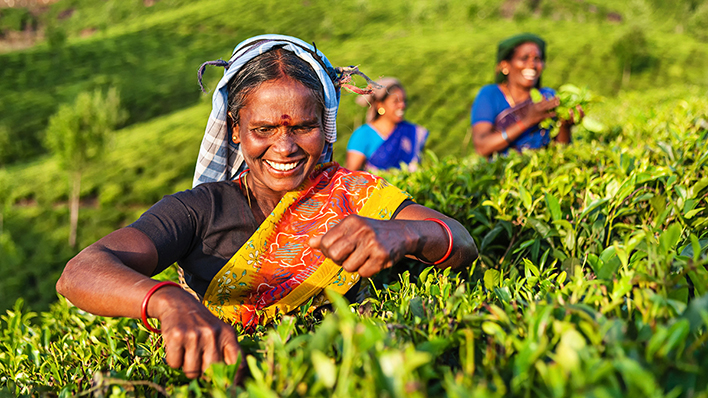
Developmental aspects of WTO reform
The chair, H.E. Dr José R. Sánchez-Fung (Dominican Republic), provided an overview of the status of several development-related areas of the WTO’s work. He also reported on the measures that the Committee has started implementing to improve its functioning.
In a communication, India provided reflections on the discussions held at the informal meeting on WTO reform focused on development in February 2023, and suggested areas for further work.
Food security
A communication from Brazil notes that international trade is essential to tackling global food insecurity. The communication calls for a negotiating agenda to reduce agricultural domestic support, tariffs and non-tariff barriers, with a view to gradually building sustainable and resilient national and international agrifood systems.
Sanitary and phytosanitary measures (SPS) and technical barriers to trade (TBT)
The United States highlighted in its communication the progress made by developing economies in complying with the SPS Agreement and the TBT Agreement. The communication indicates that the use of thematic review sessions to view WTO agreements through practical case studies is useful.
Policy space for industrial development
Members continued discussions on “policy space” for developing economies to promote industrial development based on submissions by the WTO’s African Group. A first submission, circulated earlier this year, makes a case for “rebalancing” trade rules to promote industrialization and to address challenges such as climate change, concentration of production and digital industrialization. One of the follow-up submissions looks at policy space in the context of the Agreement on Subsidies and Countervailing Measures. Another follow-up submission considers the issue in the context of the Agreement on Trade-Related Investment Measures. Several submissions concerning the role of transfer of technology in resilience-building were also considered.
Electronic commerce for development
Members considered a communication from the African Group entitled “Reinvigorating the Work under the 1998 Work Programme on Electronic Commerce: A Development Approach to the Work Programme on E-Commerce”. They also continued discussing a communication from India and South Africa entitled “Global Electronic Commerce for Inclusive Development”. These discussions follow on from the decision adopted at the 12th Ministerial Conference in 2022 to reinvigorate the work under the Work Programme on Electronic Commerce, particularly regarding its development dimension.
Capacity-building activities
The WTO Secretariat noted that the technical assistance management system has been improved through the simplification of communication and application processes regarding future technical assistance activities.
The Technical Assistance Dashboard has been recently enriched with data on members’ voluntary contributions to the financing of technical assistance. The objective is to give higher visibility to donors’ contributions and provide a better understanding of the resources available. The dashboard gives members and observer governments access to real-time data on technical assistance activities delivered by the WTO.
More information on technical assistance and training is available here.
Reporting on its latest Joint Advisory Group meeting held in July 2023, the International Trade Centre (ITC) said it has continued to help small businesses access international markets, thus contributing to meeting the United Nations Sustainable Development Goals amid global instability. The COVID-19 crisis continues to have negative long-term effects, said the ITC, while climate change is worsening, the geopolitical situation threatens global trade routes, and inflation remains high. In the face of these challenges, the ITC is working towards creating a more inclusive, sustainable and connected world.
ITC is a joint agency of the United Nations Conference on Trade and Development and the WTO, dealing with business aspects of trade development.
Duty-free and quota-free market access for LDCs
The Committee conducted its annual review of the steps taken to provide duty-free and quota-free market access to LDCs. The list of LDCs can be found here.
Participation of developing economies in the global trading system
The WTO Secretariat underscored that in 2022, the share of exports and imports of goods by developing economies reached around 47 per cent and 43 per cent respectively of global trade in value terms, up from just below 45 per cent and 42 per cent in 2020 respectively. Similarly, their exports of commercial services exceeded 32 per cent of the global share in 2022. This is above pre-pandemic levels, with a share of less than 31 per cent in 2018. However, developing economies’ share of imports of global commercial services accounted for less than 36 per cent in 2022, compared to over 37 per cent in 2018.
The top three developing economies for merchandise exports in 2022 were China, the Republic of Korea and Mexico. The top three developing economies for merchandise imports were China, the Republic of Korea and India. The top three exporters of commercial services in 2022 were China, India and Singapore.
Regional trade agreements and preferential trade arrangements
At a meeting of the Committee’s Dedicated Session on Regional Trade Agreements, the chair updated members on the status of factual presentations of regional trade agreements.
An update on the status of factual presentations of preferential trade arrangements was provided at a meeting of the Committee’s Dedicated Session on Preferential Trade Arrangements. At the same meeting, the United Kingdom presented a notification concerning its new trade preference scheme for developing countries — the Developing Countries Trading Scheme.
The chair urged members that have notified regional trade agreements and preferential trade arrangements to submit the required data and information to allow the WTO Secretariat to prepare the factual presentations. These factual presentations are required under the Transparency Mechanism for Regional Trade Agreements and the Transparency Mechanism for Preferential Trade Arrangements.
Monitoring mechanism on special and differential treatment
At a meeting of the Committee’s Dedicated Session on the Monitoring Mechanism on Special and Differential Treatment, members continued discussions on the operationalization of the Monitoring Mechanism, which was established at the Bali Ministerial Conference in 2013. More information on special and differential treatment can be found here.
Date of the next meeting
The next meetings of the Committee and its dedicated sessions are scheduled for March 2024.
Share
Reach us to explore global export and import deals